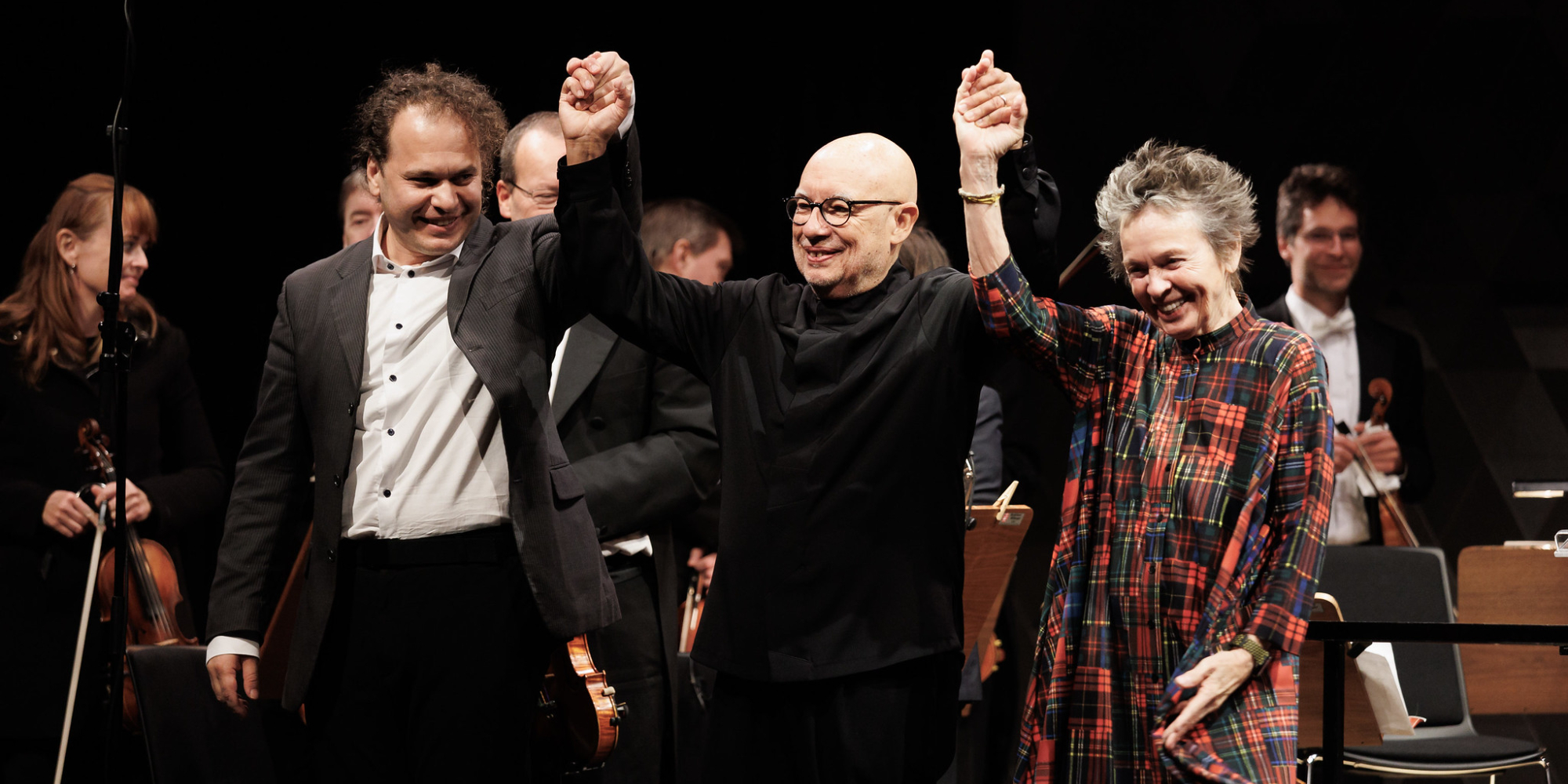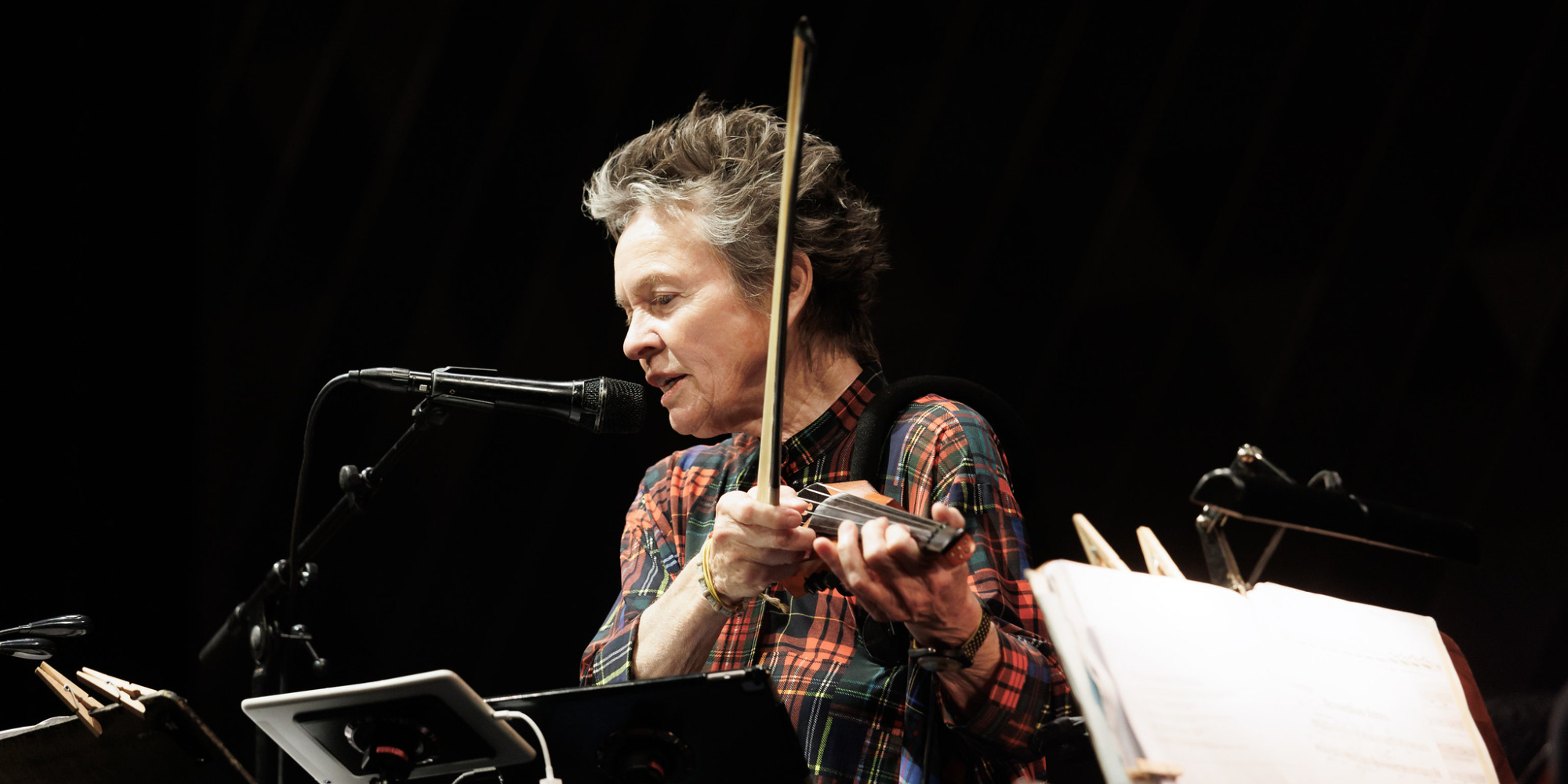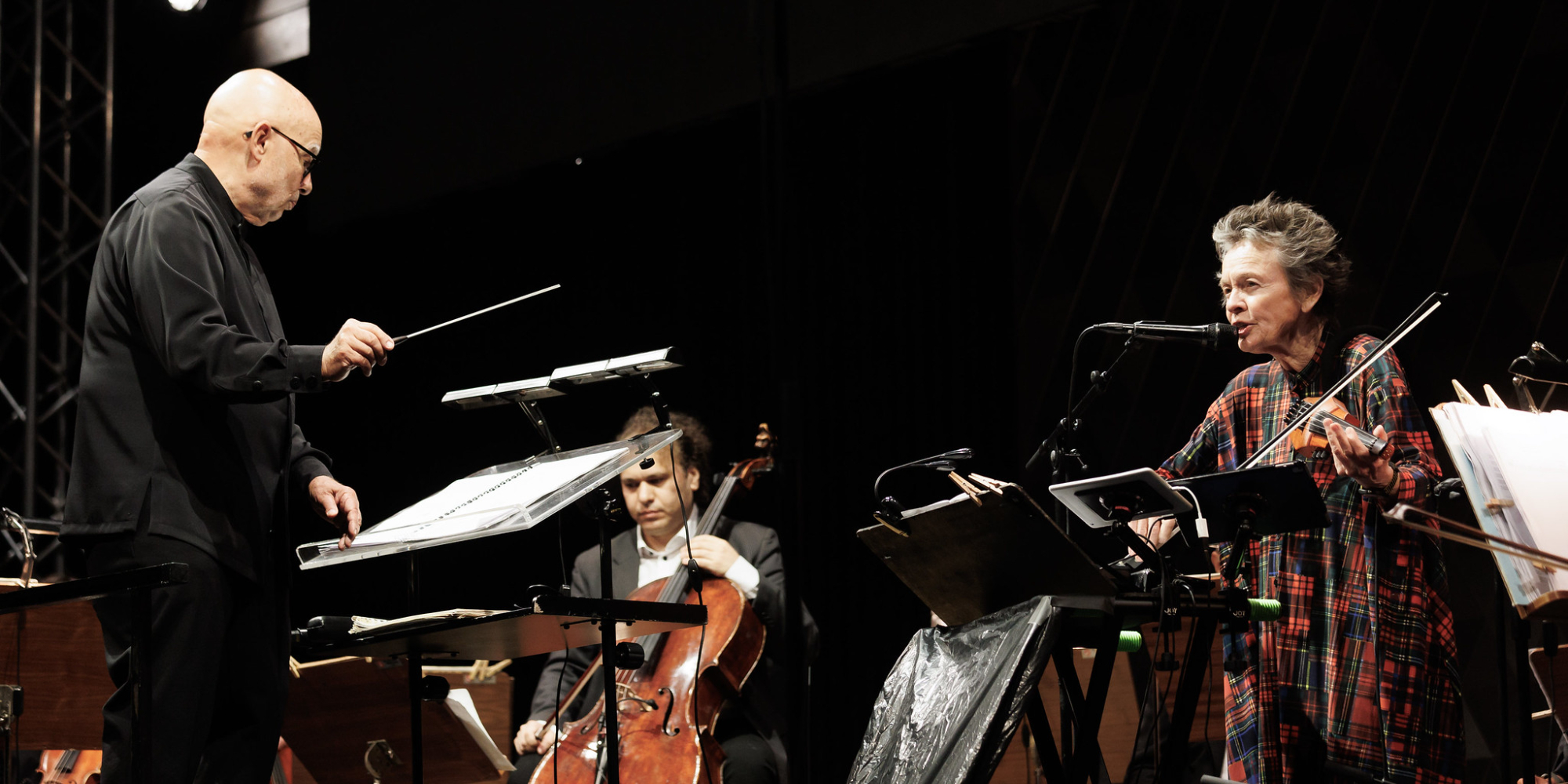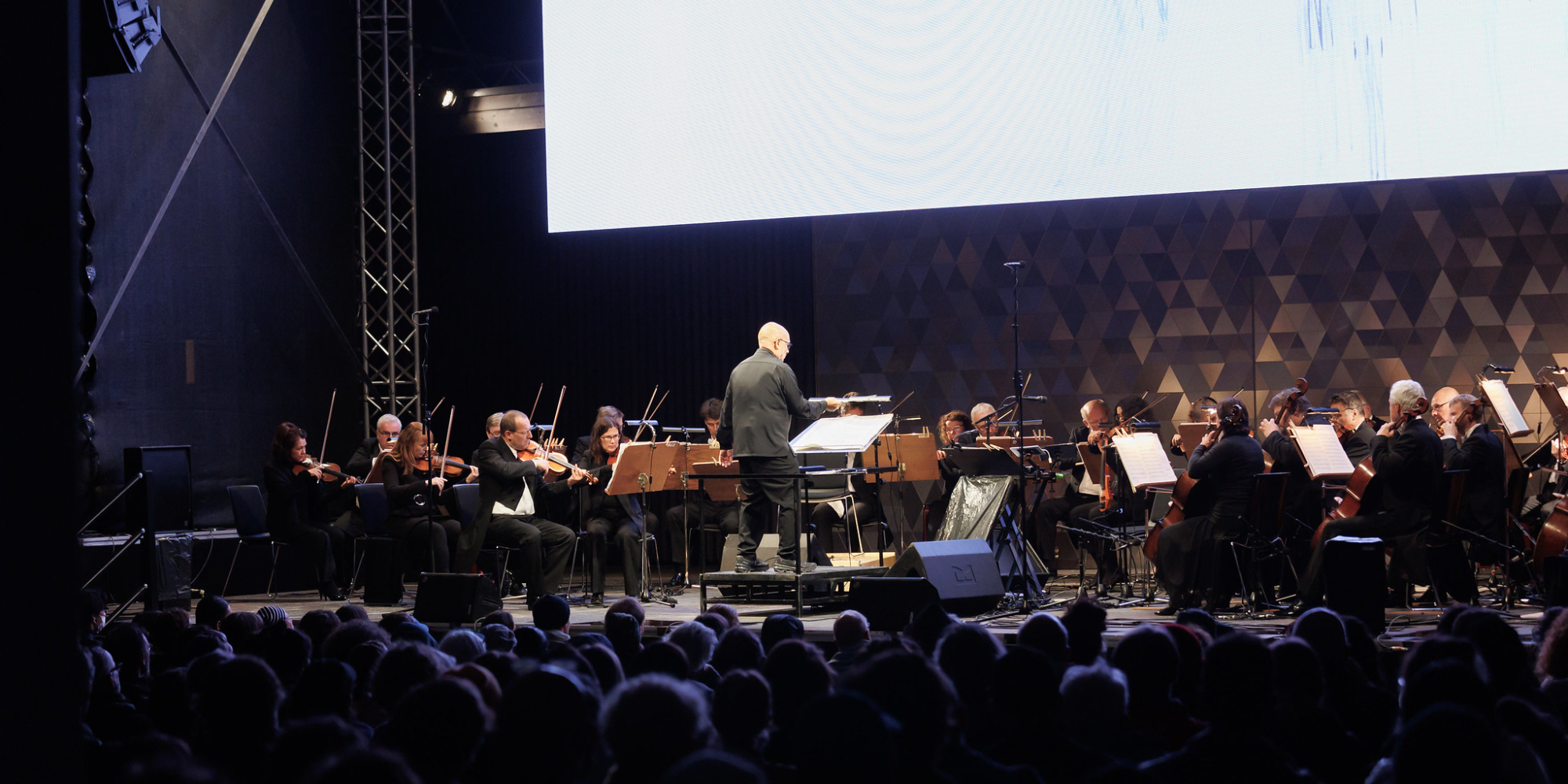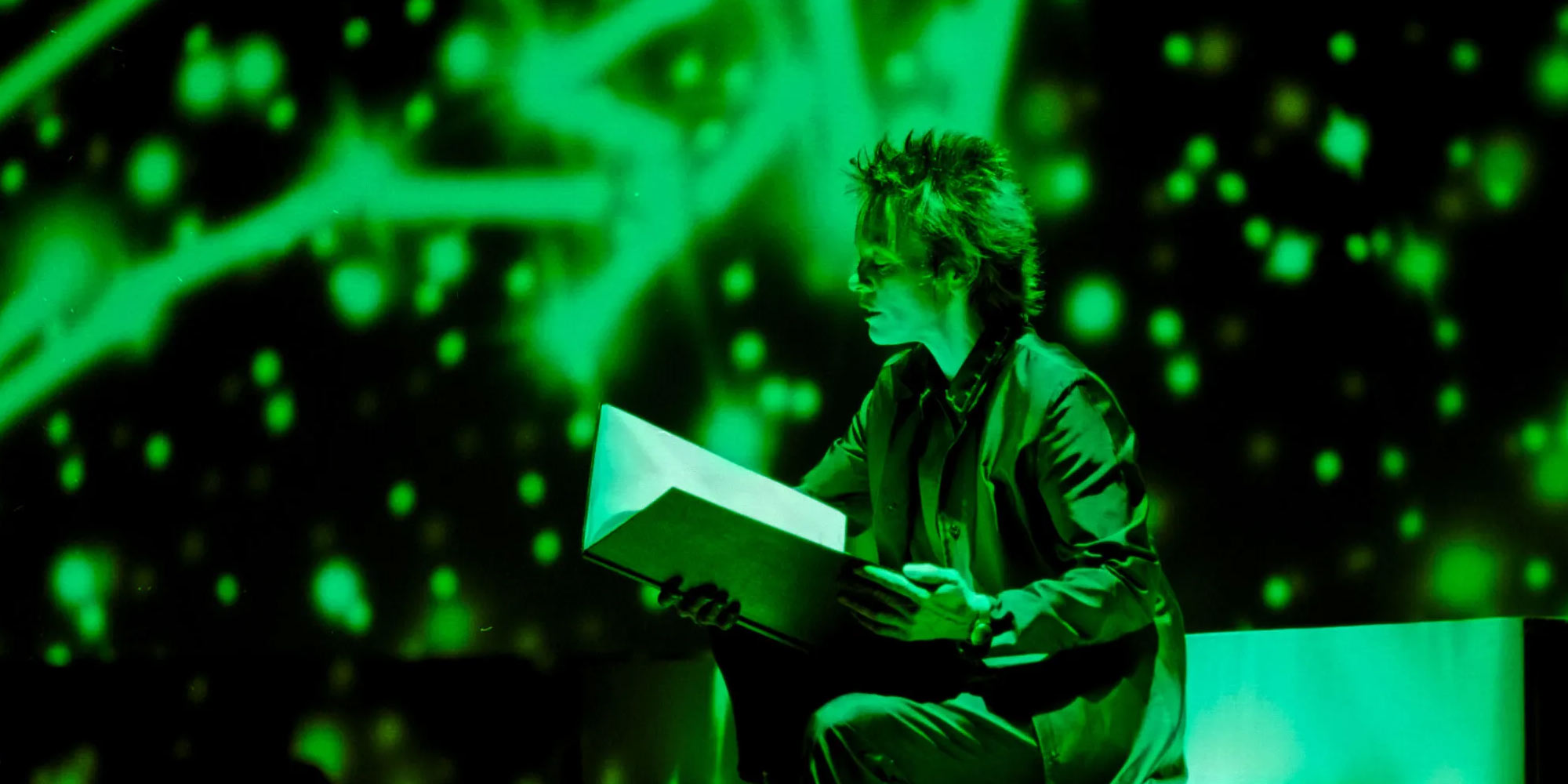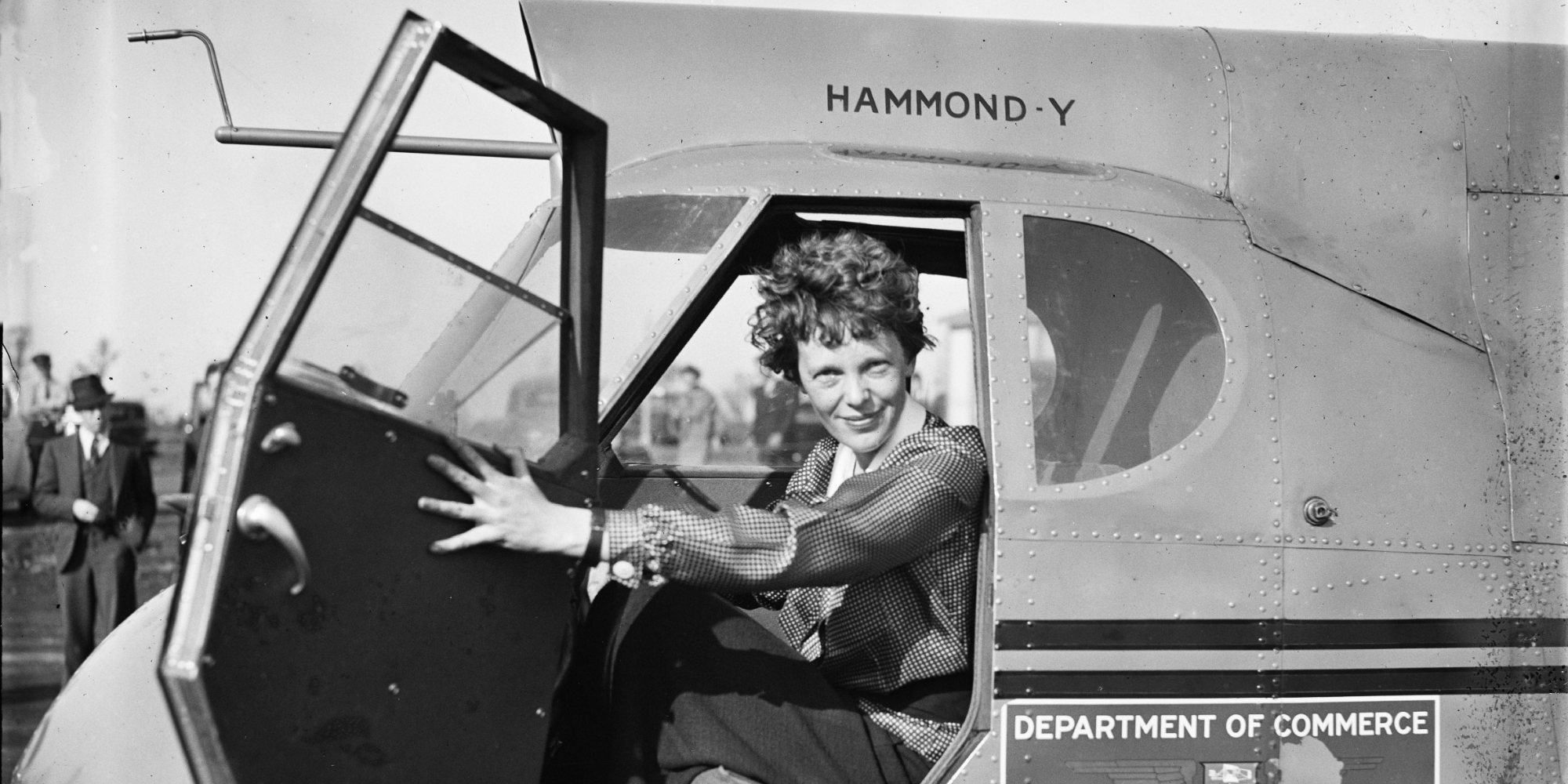At this year’s festival Laurie Anderson is to be awarded the Golden Nica for Visionary Pioneers, a wonderful opportunity to present one of her latest musical works. This is a composition for orchestra, voice, electronics, violin and cello, performed by the Filharmonie Brno, conducted by Dennis Russell Davies with Laurie Anderson and Rubin Kodheli, who plays the solo cello.
The piece concerns another great female trailblazer, Amelia Earhart, who was a passionate pioneer of early aviation, achieving fame as the first woman to cross the Atlantic in 1932. Five years later, Earhart planned to fly around the world. However, before she could complete her voyage her plane disappeared without trace and has never been found since.
Of course, with Laurie Anderson as the creator, Songs for Amelia Earhart is not just a musical composition, but also a great piece of storytelling. The work is not conceived as a documentary, but as a subjective narrative of the fate of a famous female aviator. Laurie Anderson said: “The words used in Amelia are taken from her pilot diaries, the telegrams she wrote to her husband, and my idea of what a woman flying around the world can think of.”
First premiered at Carnegie Hall in 2000, conducted by Dennis Russell Davies the piece has undergone some iterations since then and contains several new parts, such as duets by Laurie Anderson and Rubin Kodheli that fulfill the function of interlude.
“I say I tell stories. And those look like paintings sometimes. They look like, you know, songs. They look like films. They’re just stories. What is a story? What is its function? How does it work? Who’s telling it? To who?” — Laurie Anderson in an interview with Anderson Cooper, CBS
In this concert for Ars Electronica 2022, Laurie’s piece is complemented by two other compositions, the Second Movement of Philip Glass’ No. 3 Symphony and “Study for String Orchestra” composed in 1943 by Czech composer Pavel Haas while he was imprisoned in Theresienstadt concentration camp. Haas was murdered at Auschwitz-Birkenau in 1944. The orchestral parts of “Study” were found after the liberation of Theresienstadt and the score was reconstructed.
LIMITED SEATING: Admission only with valid ticket. Seat tickets for ARTISTPASS holders will be issued at the INFODESK (subject to availability). The ticket is valid for the performance selected at the time of booking. The concert is an open-air event that will take place even if it rains. We do not guarantee weather-protected seats. We kindly ask you to bring rain protection and weatherproof outfit.
